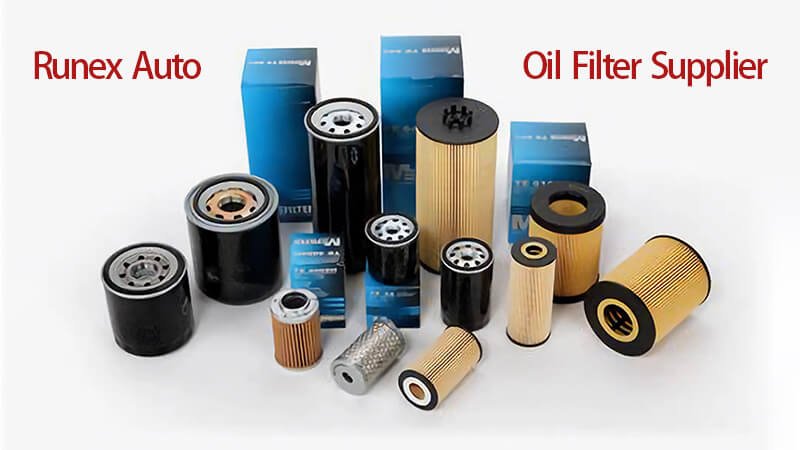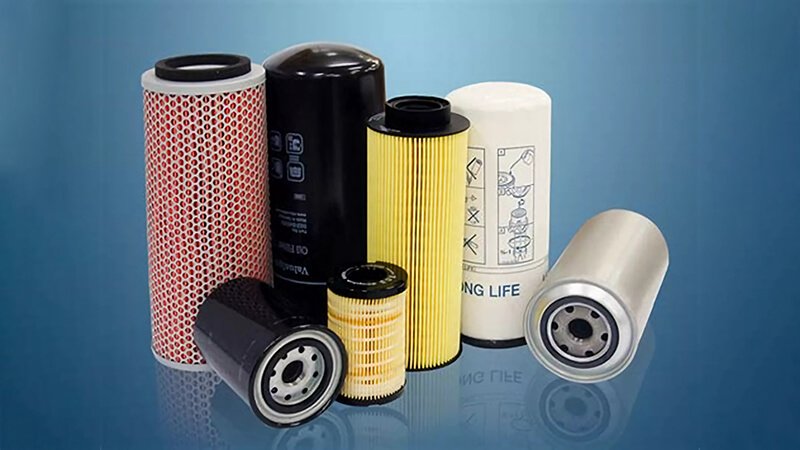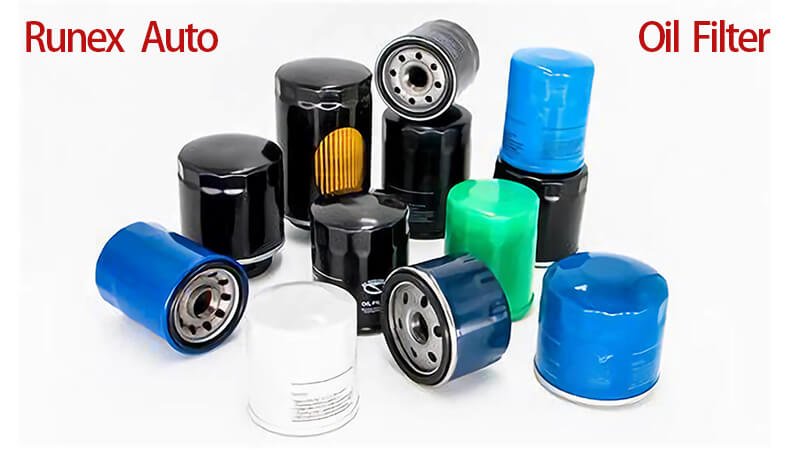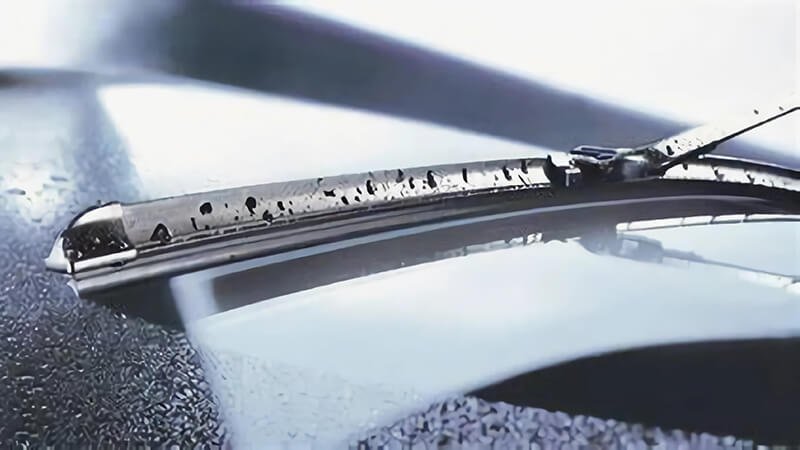If you're using synthetic oil in your vehicle, you may wonder whether it's okay to use a standard oil filter or if you need a special one. The answer is a bit more nuanced than just yes or no. Let's dive into the details.
You can use a regular oil filter with synthetic oil, but for longer oil change intervals, it’s recommended to use filters designed specifically for synthetic oils. These filters are designed to handle higher capacities and more efficient filtration, keeping your engine running smoothly for longer periods.
Choosing the right oil filter is crucial for maintaining engine health, especially when using synthetic oil. But what exactly happens when you pair regular oil filters with synthetic oil, and should you consider switching to a specialized one? Let’s explore these questions in detail.

What happens if I use a regular oil filter with synthetic oil?
The short answer is yes, you can use a regular oil filter with synthetic oil. However, there are a few considerations to keep in mind, especially if you plan on extending your oil change intervals. Let’s break it down.
Using a standard oil filter with synthetic oil will work fine for short intervals. However, if you plan on extending oil changes, you should consider a filter designed for synthetic oil. These filters are built to handle higher pressure and filtration needs for extended periods.
A regular oil filter may seem like a suitable option for synthetic oil, but it's not always the best choice, especially for those who follow extended oil change schedules. Here’s why:
1. Synthetic Oil Characteristics
Synthetic oils are engineered to last longer and perform better than conventional oils. They have superior resistance to oxidation, high-temperature breakdown, and they generally hold up better under extreme conditions. However, this increased durability places more strain on the oil filter, which needs to cope with prolonged filtration. A regular oil filter may not be equipped to handle the additional demands of synthetic oil, especially during extended intervals between changes.
2. Filtration Efficiency and Capacity
Regular oil filters are typically designed for conventional oils and may not have the filtration capacity needed for synthetic oil1s. Synthetic oils have better detergent properties, meaning they tend to pick up more contaminants and smaller particles. A regular filter might become clogged more quickly, reducing its ability to protect the engine. This can lead to lower oil pressure and less effective filtration.
Here is a comparison table between regular oil filters and synthetic oil filters:
| Feature | Regular Oil Filter | Synthetic Oil Filter |
|---|---|---|
| Filtration Media | Paper-based or cellulose | Synthetic fiber or blend |
| Anti-Drainback Valve | Rubber (can become brittle) | Silicone (more durable) |
| Capacity | Standard, typically for short intervals | Larger, designed for extended intervals |
| Durability | Lower, suitable for shorter intervals | Higher, designed for extended use |
| Efficiency | Standard filtration | High efficiency, better for synthetic oils |
3. The Impact of Extended Oil Change Intervals
Extended oil change intervals are one of the primary reasons people switch to synthetic oil. Synthetic oils can last longer without degrading, but this places additional stress on the oil filter. Regular oil filters are not designed for these long durations. If you continue using them, you may notice engine noise, reduced performance, or even oil sludge buildup. These issues are typically a sign that the filter is not performing as well as it should.
For example, a client was using standard filters with synthetic oil. They extended their oil change intervals, but after some time, the engine started making more noise than usual. After switching to a synthetic-compatible filter, the engine noise disappeared, and the performance returned to normal.

Do I need a special oil filter for synthetic?
Synthetic oils have advanced properties that demand a certain level of performance from the oil filter. But is a special filter really necessary? Let’s look into the specifics and why some filters are better suited for synthetic oil.
While you can use a standard filter, a filter specifically designed for synthetic oil provides better filtration, durability, and extended service life. These filters typically feature enhanced media and a stronger anti-drainback valve, which are crucial for synthetic oil performance.
Using synthetic oil often leads to questions about the need for a special oil filter. Here are some of the factors that explain why it’s a good idea to use a filter designed for synthetic oil:
1. Filter Media
Filters designed for synthetic oils are often made with high-quality, synthetic or synthetic-blend media that allows for better filtration of impurities. Synthetic oils tend to pick up smaller particles and contaminants that regular oils might not, which requires a filter that can capture those particles without clogging as quickly. These filters are designed to handle the increased capacity of synthetic oils and offer more efficient filtration.
Synthetic filters use materials like pleated synthetic fibers or blends that increase surface area, making it easier to trap more contaminants. As a result, these filters can last longer without clogging and are more efficient in keeping the engine clean.
2. Silicone Anti-Drainback Valve
One of the key features of oil filters designed for synthetic oils is the silicone anti-drainback valve2. Regular filters often use a rubber valve, which can become brittle over time, especially with the extended service intervals associated with synthetic oil. Silicone valves, on the other hand, remain flexible and durable, preventing oil from draining back into the pan and ensuring that your engine gets the right amount of oil on start-up.
This feature is crucial when using synthetic oils, which tend to stay in the engine longer and may require longer intervals between changes. The anti-drainback valve ensures that oil stays in the engine when the vehicle is off, preventing dry starts and providing better lubrication when you start the engine.
3. Durability and Longevity
Another important factor to consider is the longevity of the filter. Regular oil filters are often designed for shorter oil change cycles and may not hold up as well during longer intervals. On the other hand, synthetic oil filter3s are specifically engineered to last longer, reducing the risk of premature clogging. When using synthetic oil, you are likely to extend oil change intervals, and a specialized filter can provide the additional durability needed to handle that change.
Here’s a comparison of the features:
| Feature | Regular Oil Filter | Synthetic Oil Filter |
|---|---|---|
| Media | Cellulose, paper | Pleated synthetic, blend |
| Anti-Drainback Valve | Rubber (may deteriorate) | Silicone (durable, flexible) |
| Service Interval | Shorter | Longer, designed for extended use |
| Capacity and Efficiency | Standard, for conventional oils | Larger, more efficient for synthetic |
| Durability | Lower | Higher, withstands extended use |
Switching to a synthetic oil filter ensures that your engine receives maximum protection, as these filters are specifically built to withstand the longer intervals and higher demands placed on them by synthetic oils.

What is the best oil filter for synthetic blend oil?
Synthetic blend oils combine the benefits of synthetic and conventional oils, but do they require a specific type of oil filter? Let’s discuss which filter works best for this type of oil.
For synthetic blend oils, it's best to use a high-quality oil filter that can handle both conventional and synthetic oil properties. A filter with synthetic media and a silicone anti-drainback valve will ensure better filtration and longer service life.
When using synthetic blend oil, you don’t need to overthink the choice of oil filter4. However, it’s still important to pick one that complements the oil type. Here's why:
1. The Nature of Synthetic Blend Oil
Synthetic blend oils are a mixture of synthetic and conventional oils. They offer improved performance over regular oils, but not to the extent of full synthetic oils. Since synthetic blend oil5s are often used for slightly extended oil change intervals, the filter needs to be able to handle the combination of oil properties. A filter designed for synthetic oils can handle both the higher-performance characteristics of synthetic oils and the standard demands of conventional oils.
Synthetic blend oils provide the benefits of better high-temperature stability and increased cleanliness, but they still carry some of the limitations of conventional oils. This means the filter should be capable of handling the contaminants that both types of oil can accumulate.
2. Key Features to Look For
The ideal oil filter for synthetic blend oil should have high-quality filtration media6, similar to what is used for full synthetic oils. These filters provide better dirt and contaminant removal, which is important for the extended oil change intervals associated with synthetic blend oils. Additionally, a silicone anti-drainback valve ensures that the filter remains efficient even during longer service periods.
3. Recommended Oil Filters
When selecting an oil filter for synthetic blend oils, look for brands that specialize in high-performance filters, such as Fram Ultra Synthetic, Mobil 1, or K&N. These filters are specifically designed to handle both synthetic and conventional oils, ensuring the best filtration and engine protection.
By choosing the right filter, you ensure that the synthetic blend oil works at its full potential, keeping your engine running smoothly for longer periods.

How long will an oil filter last with synthetic oil?
One of the advantages of synthetic oil is that it lasts longer than conventional oil. But how does this affect the lifespan of your oil filter? Let’s discuss how long you can expect your oil filter to last with synthetic oil.
With synthetic oil, oil filters can last longer than with conventional oils, especially if you follow extended oil change intervals. However, it's important to still monitor the filter for any signs of clogging or degradation.
The lifespan of an oil filter7 used with synthetic oil can vary, but generally, it lasts longer than with conventional oils. Here’s why:
1. Synthetic Oil’s Longevity
Synthetic oil is engineered to resist breaking down over time, which means it can perform for longer periods without needing a change. Because synthetic oil doesn’t degrade as quickly, the oil filter doesn't have to work as hard to capture contaminants. This means that the filter can last longer compared to conventional oils, where the oil breaks down faster and contaminates the filter more quickly.
2. Extended Oil Change Intervals
As synthetic oil lasts longer, many car owners extend their oil change intervals8. With this in mind, the oil filter designed for synthetic oil is often built to endure these extended periods as well. High-quality filters can last between 10,000 to 15,000 miles when used with synthetic oil, depending on your vehicle’s usage and driving conditions.
3. Regular Monitoring is Key
While synthetic oil helps the filter last longer, it’s still important to monitor the filter for signs of wear. Look out for any unusual engine sounds, as they may indicate that the filter is clogged or ineffective. Regular checks will ensure that your oil filter remains efficient and your engine is protected.
In conclusion, while synthetic oil9 allows your oil filter to last longer, it’s still essential to replace the filter at the recommended intervals for optimal engine protection.

Conclusion
When using synthetic oil, it's important to choose an oil filter10 designed to handle the unique properties of synthetic oils. While a regular filter can work, a synthetic-compatible filter ensures better performance, longer service intervals, and more efficient filtration. This choice will ultimately protect your engine and improve its longevity.
-
Explore the advantages of synthetic oil to understand why it's preferred for extended oil change intervals and engine performance. ↩
-
Learn how silicone anti-drainback valves work to prevent dry starts and ensure better lubrication for your engine. ↩
-
Explore the advantages of synthetic oil filters to understand how they enhance engine performance and longevity. ↩
-
Learn how to select the right oil filter to maximize the performance of synthetic blend oil in your engine. ↩
-
Explore the advantages of synthetic blend oil to understand why it's a great choice for your vehicle's engine performance. ↩
-
Discover the importance of high-quality filtration media in oil filters for better engine protection and performance. ↩
-
Discovering this information will help you maintain your vehicle better by understanding how long your oil filter can last with synthetic oil. ↩
-
This link will help you understand the recommended oil change intervals for synthetic oil, ensuring your vehicle runs smoothly and efficiently. ↩
-
Exploring this resource will provide insights into the advantages of synthetic oil, enhancing your understanding of its benefits for your engine. ↩
-
This link is about oil filter information, clicking to get more including price from Runex Auto. ↩













